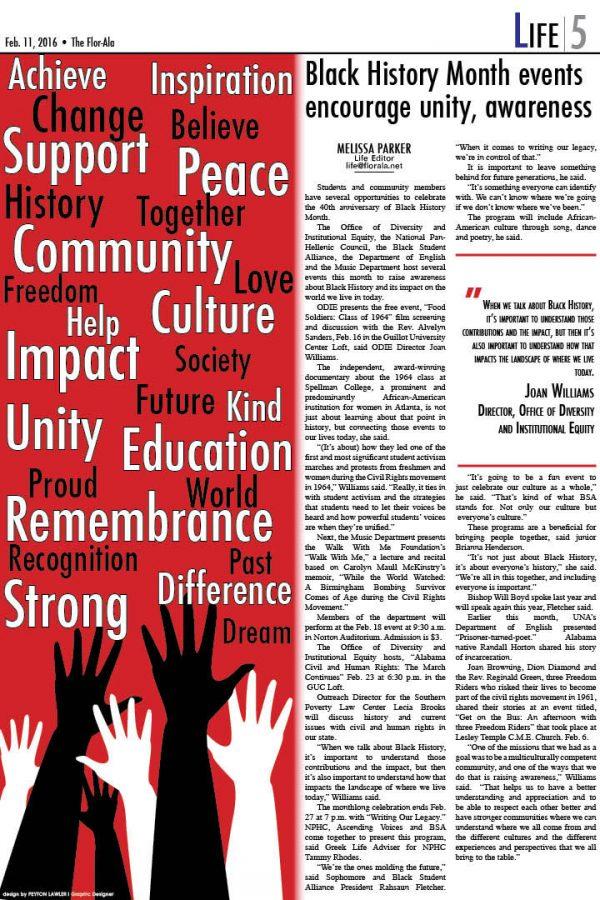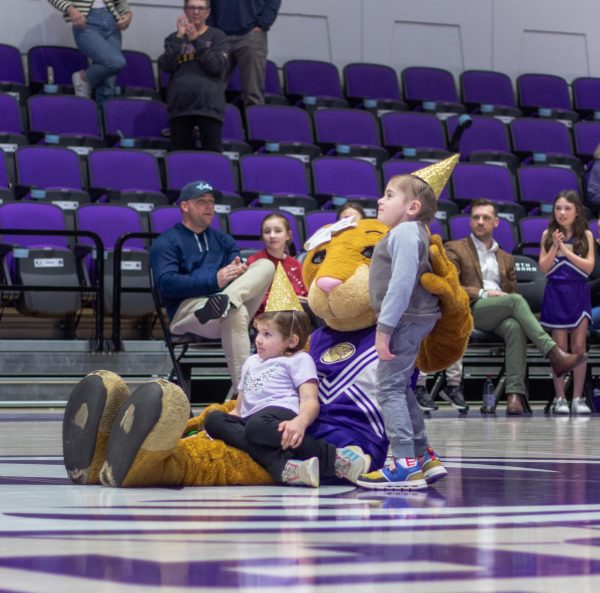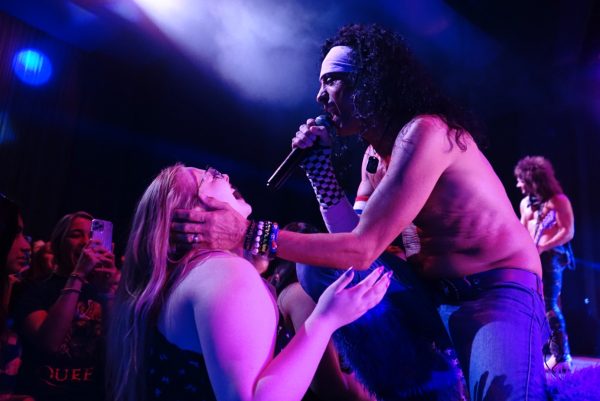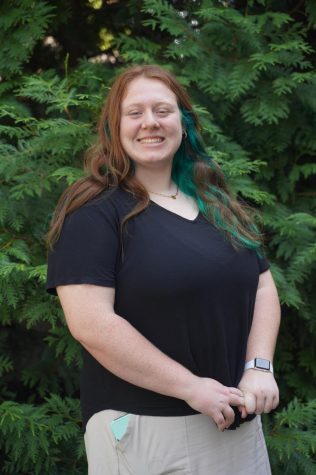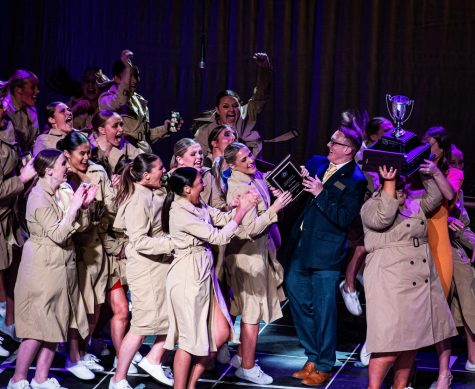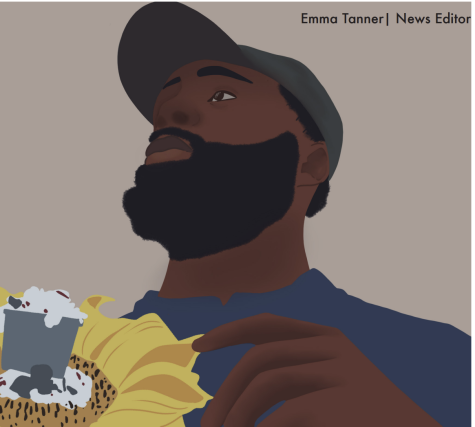Black History events encourage unity and awareness
February 13, 2016
Students and community members have several opportunities to celebrate the 40th anniversary of Black History Month.
The Office of Diversity and Institutional Equity, the National Pan-Hellenic Council, the Black Student Alliance, the Department of English and the Music Department host several events this month to raise awareness about Black History and its impact on the world we live in today.
ODIE presents the free event, “Foot Soldiers: Class of 1964” film screening and discussion with the Rev. Alvelyn Sanders, Feb. 16 in the Guillot University Center Loft, said ODIE Director Joan Williams.
The independent, award-winning documentary about the 1964 class at Spellman College, a prominent and predominantly African-American institution for women in Atlanta, is not just about learning about that point in history, but connecting those events to our lives today, she said.
“(It’s about) how they led one of the first and most significant student activism marches and protests from freshmen and women during the Civil Rights movement in 1964,” Williams said. “Really, it ties in with student activism and the strategies that students need to let their voices be heard and how powerful students’ voices are when they’re unified.”
Next, the Music Department presents the Walk With Me Foundation’s “Walk With Me,” a lecture and recital based on Carolyn Maull McKinstry’s memoir, “While the World Watched: A Birmingham Bombing Survivor Comes of Age during the Civil Rights Movement.”
Members of the department will perform at the Feb. 18 event at 9:30 a.m. in Norton Auditorium. Admission is $3.
The Office of Diversity and Institutional Equity hosts, “Alabama Civil and Human Rights: The March Continues” Feb. 23 at 6:30 p.m. in the GUC Loft.
Outreach Director for the Southern Poverty Law Center Lecia Brooks will discuss history and current issues with civil and human rights in our state.
“When we talk about Black History, it’s important to understand those contributions and the impact, but then it’s also important to understand how that impacts the landscape of where we live today,” Williams said.
The monthlong celebration ends Feb. 27 at 7 p.m. with “Writing Our Legacy.” NPHC, Ascending Voices and BSA come together to present this program, said Greek Life Adviser for NPHC Tammy Rhodes.
“We’re the ones molding the future,” said Sophomore and Black Student Alliance President Rahsaun Fletcher. “When it comes to writing our legacy, we’re in control of that.”
It is important to leave something behind for future generations, he said.
“It’s something everyone can identify with. We can’t know where we’re going if we don’t know where we’ve been.”
The program will include African-American culture through song, dance and poetry, he said.
“It’s going to be a fun event to just celebrate our culture as a whole,” he said. “That’s kind of what BSA stands for. Not only our culture but everyone’s culture.”
These programs are beneficial for bringing people together, said junior Brianna Henderson.
“It’s not just about Black History, it’s about everyone’s history,” she said. “We’re all in this together, and including everyone is important.”
Bishop Will Boyd spoke last year and will speak again this year, Fletcher said.
Earlier this month, UNA’s Department of English presented “Prisoner-turned-poet.” Alabama native Randall Horton shared his story of incarceration.
Joan Browning, Dion Diamond and the Rev. Reginald Green, three Freedom Riders who risked their lives to become part of the civil rights movement in 1961, shared their stories at an event titled, “Get on the Bus: An afternoon with three Freedom Riders” that took place at Lesley Temple C.M.E. Church. Feb. 6.
“One of the missions that we had as a goal was to be a multiculturally competent community, and one of the ways that we do that is raising awareness,” Williams said. “That helps us to have a better understanding and appreciation and to be able to respect each other better and have stronger communities where we can understand where we all come from and the different cultures and the different experiences and perspectives that we all bring to the table.”


